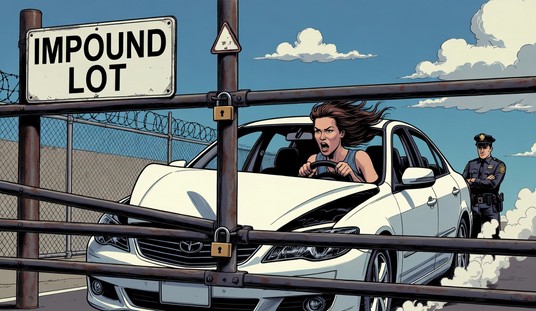The Drudge Report remains one of the most accurate barometers of what’s happening right now.
But can we augur near-future trends by sifting through that site’s headlines?
Lately, Drudge has posted lots of news stories about “the devil” and “exorcism”:
Camera captures exorcism performed on shrieking woman “possessed by devil:
Church Turns to Exorcism to Combat Suicide Increase… Archbishop: “Satanism has spread among young people”
BILLY GRAHAM: In Our “Lawless and Wicked Age We’ve Taught Philosophy of Devil”
Aside from the uptick in stories like these, I’m not sensing a resurgence in interest in all things diabolical, a new version of the “occult” fad that helped make the 1970s so miserable, and led to the “satanic panic” of the 1980s that was almost as bad.
Peter Bebergal doesn’t agree.
According to him, “we’re currently experiencing ‘an Occult Revival in rock music and popular culture.'”
He’s penned one of the year’s most talked-about books, Season of the Witch: How the Occult Saved Rock and Roll.
The author outlined his book’s thesis to NPR:
“My argument is that the spirit of rock and roll — the essential rebellious instinct of rock and roll — is certainly social and sexual and political, but it’s also a spiritual rebellion,” Bebergal explained. “And the way in which it expressed that spiritual rebellion was through the occult imagination.”
That “occult imagination” conjures everything from Ouiji boards to Christian and Jewish symbolism to LSD trips to “alternative spiritual practices.” Bebergal says it ultimately helped rock bands like Led Zeppelin, Pink Floyd and Black Sabbath save rock from sounding too poppy, sappy and mainstream.
https://www.youtube.com/watch?v=w1_3LQM5iUg
https://www.youtube.com/watch?v=fshjN-nhpGg
I hope Bebergal is wrong about that looming occult revival, and I know he’s wrong about his book’s thesis.
In point of fact, the occult influence on pop culture in the 1960s and 1970s made it all worse.
I grew up in the Sixties and Seventies, during the inescapable “occult craze.” Rock music larded with supernatural tropes blared from the radio. Every other major motion picture costarred the Devil. Sybil Leek’s witchcraft instruction manuals were matter-of-factly stocked right beside the TV Guide, as were countless similar tomes. Ouija boards outsold Monopoly.
And almost as bad were the ham-fisted attempts by (mostly) Protestant types to counter this sinister, suffocating stuff.
And too often, their efforts were laughable:
Urban legends about “backmasking,” and covens meeting in every cul de sac.
Some of this modern day Christian witch-hunting was nothing more than a lucrative scam, as outlined in that classic of investigative journalism, Selling Satan: The Evangelical Media and the Mike Warnke Scandal.
In fact, I firmly believe it drove more teenagers into the arms of evil than any number of Led Zeppelin records.
But that doesn’t let Led Zeppelin off the hook, either…
I’m still digesting Season of the Witch, but for now, I’m relying on an earlier title to help prove that, in fact, pop culture’s embrace of the occult was bad for music in particular, not to mention society at large.
Gary Lachman’s Turn Off Your Mind is subtitled The Mystic Sixties and the Dark Side of the Age of Aquarius.
You’d be forgiven for thinking that this is just another inadvertently funny Chick Comics-type screed about Dungeons and Dragons, but The Hidden Dangers of the Rainbow this ain’t.
See, as “Gary Valentine,” Lachman co-founded the group Blondie, making him as secular and un-saved as can be.
But while he’s an expert on all things esoteric, Lachman’s not the other kind of true believer, either: an outright apologist for the occult.
He calls Church of Satan founder Anton LaVey’s philosophy “revolting,” for instance.
(You’ll have noticed a distinct deficit of “devil” lyrics in the Blondie catalog…)
As his subtitle indicates, Lachman is devoutly interested in revealing the “dark side” of an era supposedly focused on peace and love.
Like me, he doesn’t think it’s a coincidence that Woodstock and the Summer of Love were quickly followed by Altamont and the Manson Family.
However, Lachman adds:
If it hadn’t been Manson and Altamont, it would have been something else. Manson didn’t “kill the sixties,” as some have suggested. They committed suicide, OD’d on excess, high expectations, and a belief that getting rid of all repression — what I’ve called “giving way to strange forces” — some pure, natural soul would emerge. They were wrong.
So you see, you don’t have to be a loony, uncool, corny televangelist or “New World Order” conspiracy buff to find the late 20th century occult craze — and the gnostic/fascist esoterica that went with it — regrettable to say the least.
Writing about the occult line that, while fainter, runs through yet another entertainment genre — comedy — I noted:
So yes, Bible-thumpers wasted a generation looking for covens in all the wrong places. Making fun of them is, well, fun. But a slender satanic thread has run through American pop culture ever since 1968’s Rosemary’s Baby (whose director lost his wife soon thereafter in a frenzied cult murder spree). Never mind that The Rolling Stones and Black Sabbath—even Sammy Davis, Jr.—flirted with the Devil back when membership in Anton LaVey’s “church” was commonplace in Hollywood.
Next week, I’ll report back on The Season of the Witch and whether or not Peter Bebergal’s managed to convince me that “the occult saved rock and roll.”
I don’t think he will.
I mean, just think about Their Satanic Majesty’s Request.
It’s “a load of crap.”
And that’s not just me talking.
That’s what Keith Richards said.










Join the conversation as a VIP Member